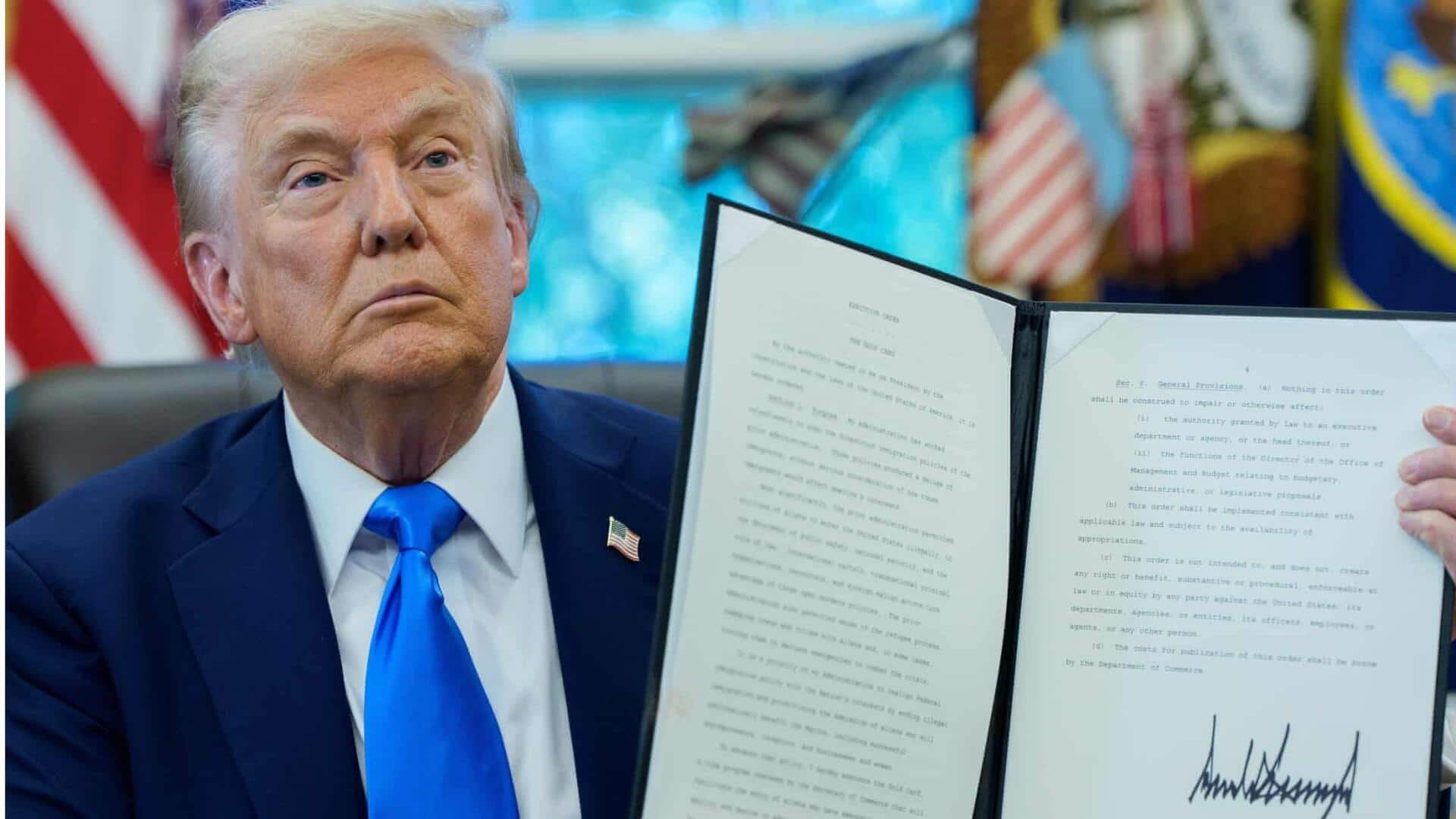
Trump announces new H-1B visa rules: Key conditions and exceptions
What's the story
US President Donald Trump has signed an executive order to hike the fees for H-1B visas, now requiring employers to pay $100,000 per H-1B petition for workers outside the US. In the executive order, Trump has detailed some conditions and exceptions for H-1B visa applicants. Here are the main highlights.
Scenario
Order comes into effect on September 21
The order takes effect at 12:01am EDT on September 21, 2025, and applies only to individuals who "enter or attempt to enter the US after the effective date of this proclamation." The restriction shall expire after one year from this date unless renewed. The Secretary of Homeland Security has the authority to waive this for an individual, all employees of a company, or all workers in an industry, if the hiring benefits the national interest and doesn't compromise nation's security.
Compliance requirements
Employers must keep proof of payment
The executive order also lays down some rules in regard to payments. Employers must keep proof of payment, while the Secretary of State will verify it during the visa petition process. The Department of Homeland Security and State will deny entry to those whose employers haven't paid the required fee.
Policy changes
Other key points in the order
The Secretary of Labor will revise wage levels according to the policy goals of this proclamation. The Secretary of Homeland Security will prioritize the admission of high-skilled and high-paid individuals. A report on whether to extend or renew these restrictions will be submitted to Trump within 30 days after the H-1B lottery following this proclamation.
Abuse allegations
Companies abused H-1B program to replace American workers
The executive order accuses companies of abusing the H-1B program to replace American workers with cheaper foreign labor. It cites rising unemployment among US computer science graduates and layoffs linked to H-1B hiring as evidence. The order also highlights national security risks associated with these abuses, including visa fraud and money laundering by outsourcing companies reliant on H-1B workers.
Scenario
Take a look at Trump's statements
Trump said that "The H-1B nonimmigrant visa program was created to bring temporary workers into the US to perform additive, high-skilled functions, but it has been deliberately exploited to replace, rather than supplement, American workers with lower-paid, lower-skilled labor." "Information technology (IT) firms in particular have prominently manipulated the H-1B system, significantly harming American workers in computer-related fields," he added further.
Labor market
Forced to train foreign counterparts taking their jobs
The order notes that the foreign share of the workforce in computer and math occupations grew from 17.7% in 2000 to 26.1% in 2019. It also highlights how American IT workers are often forced to train their foreign counterparts, taking their jobs. This suggests that H-1B visas aren't being used as intended, to fill occupational shortages or hire highly skilled workers unavailable domestically.